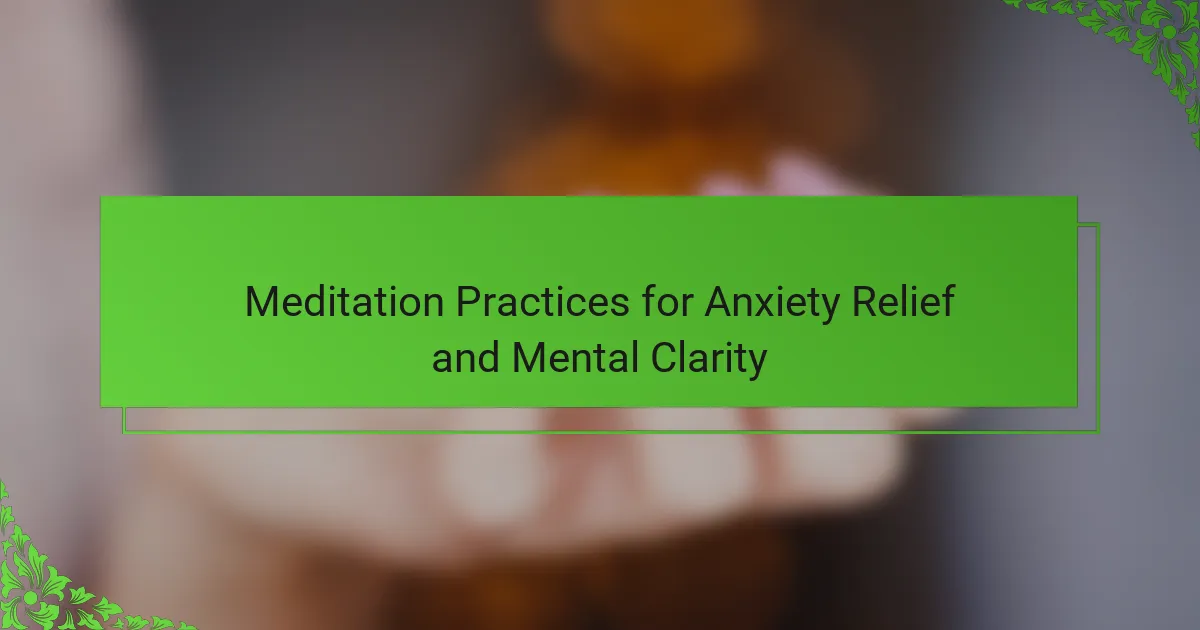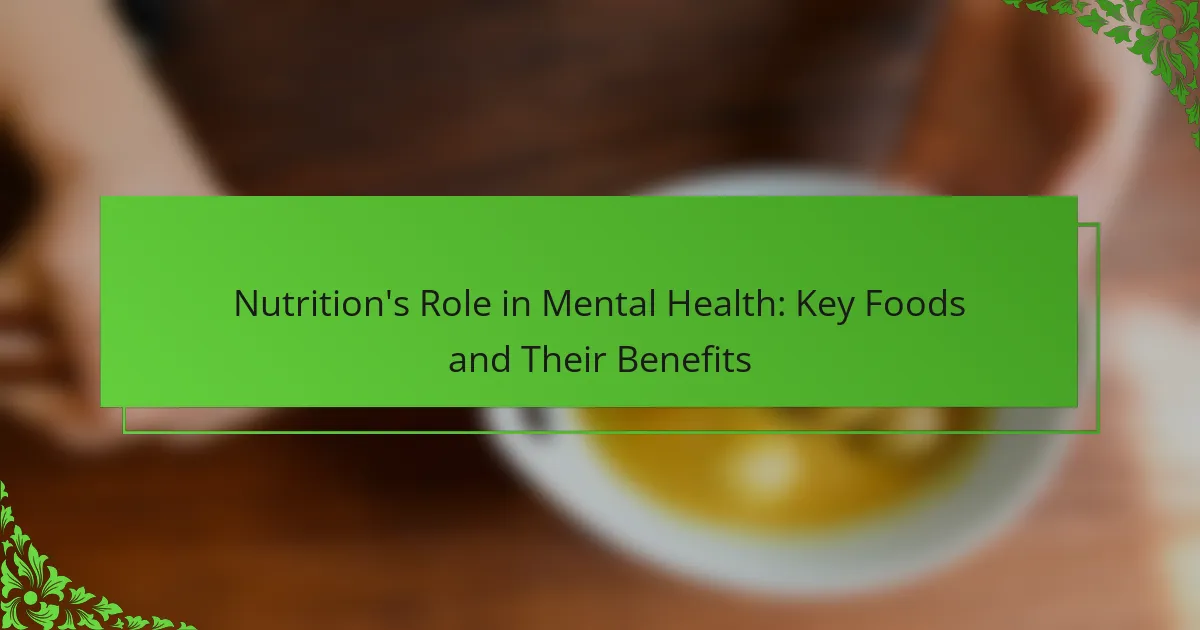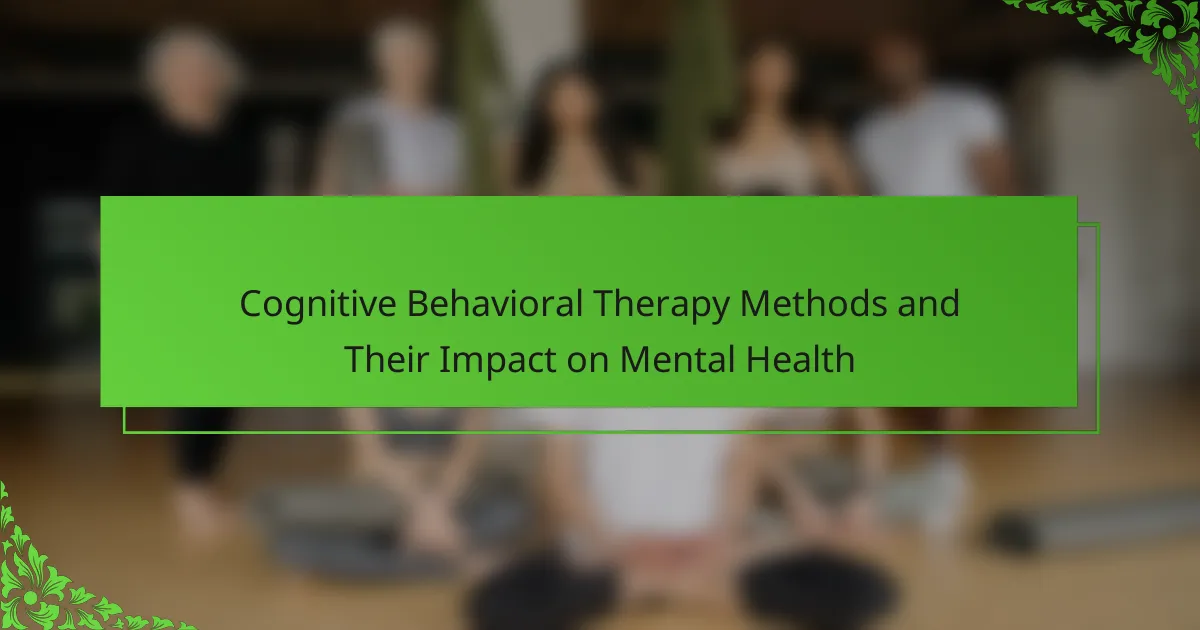Meditation practices offer significant relief from anxiety while enhancing mental clarity. Techniques such as mindfulness, loving-kindness, and body scan meditation effectively reduce stress levels and promote relaxation. Regular practice can lower cortisol levels and improve cognitive function, leading to better decision-making. Cultural perspectives shape these practices, providing diverse methods tailored to individual needs.
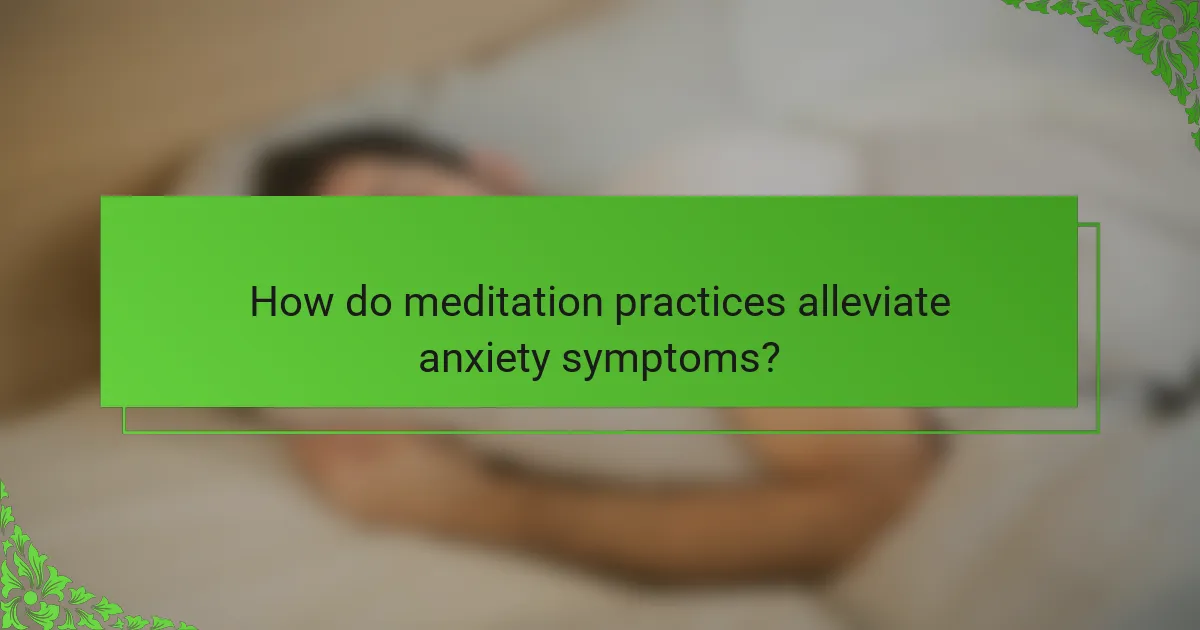
How do meditation practices alleviate anxiety symptoms?
Meditation practices significantly alleviate anxiety symptoms by promoting relaxation and enhancing mental clarity. Techniques such as mindfulness meditation, focused breathing, and loving-kindness meditation have shown effectiveness in reducing stress levels. Research indicates that regular meditation can lower cortisol levels, the hormone associated with stress. Additionally, meditation fosters emotional regulation, allowing individuals to respond to anxiety triggers more calmly. This practice cultivates a greater sense of awareness, enabling individuals to observe their thoughts without judgment, which can diminish the intensity of anxiety symptoms over time.
What physiological changes occur during meditation for anxiety relief?
Meditation induces several physiological changes that help alleviate anxiety. These changes include reduced heart rate, lower blood pressure, and decreased levels of the stress hormone cortisol. Brain activity shifts, particularly in the prefrontal cortex and amygdala, promoting emotional regulation and reducing reactivity to stressors. As a result, practitioners often experience improved mental clarity and emotional stability.
Which meditation techniques are most effective for managing anxiety?
Mindfulness meditation, progressive muscle relaxation, and guided imagery are effective techniques for managing anxiety. Mindfulness meditation focuses on present-moment awareness, reducing anxious thoughts. Progressive muscle relaxation involves tensing and relaxing muscle groups to alleviate physical tension. Guided imagery uses visualization to create calming mental images, promoting relaxation. Each technique offers unique benefits, allowing individuals to choose what resonates most with their needs.
How does mindfulness meditation impact anxiety levels?
Mindfulness meditation significantly reduces anxiety levels by promoting relaxation and enhancing emotional regulation. Research indicates that practicing mindfulness can lower cortisol levels, the hormone associated with stress. A study found that participants who engaged in mindfulness meditation experienced a 30% reduction in anxiety symptoms after eight weeks. This practice fosters greater awareness of thoughts and feelings, allowing individuals to respond to anxiety triggers more effectively. Additionally, mindfulness meditation enhances focus and mental clarity, contributing to overall mental well-being.
What role does breath control play in anxiety reduction through meditation?
Breath control significantly aids anxiety reduction in meditation by promoting relaxation and mental clarity. Controlled breathing activates the parasympathetic nervous system, which reduces stress hormones. This practice enhances focus, grounding individuals in the present moment. Regular breath control during meditation can lower heart rate and improve emotional regulation, contributing to overall mental well-being. Research shows that mindful breathing can decrease anxiety symptoms by up to 50% in some individuals.
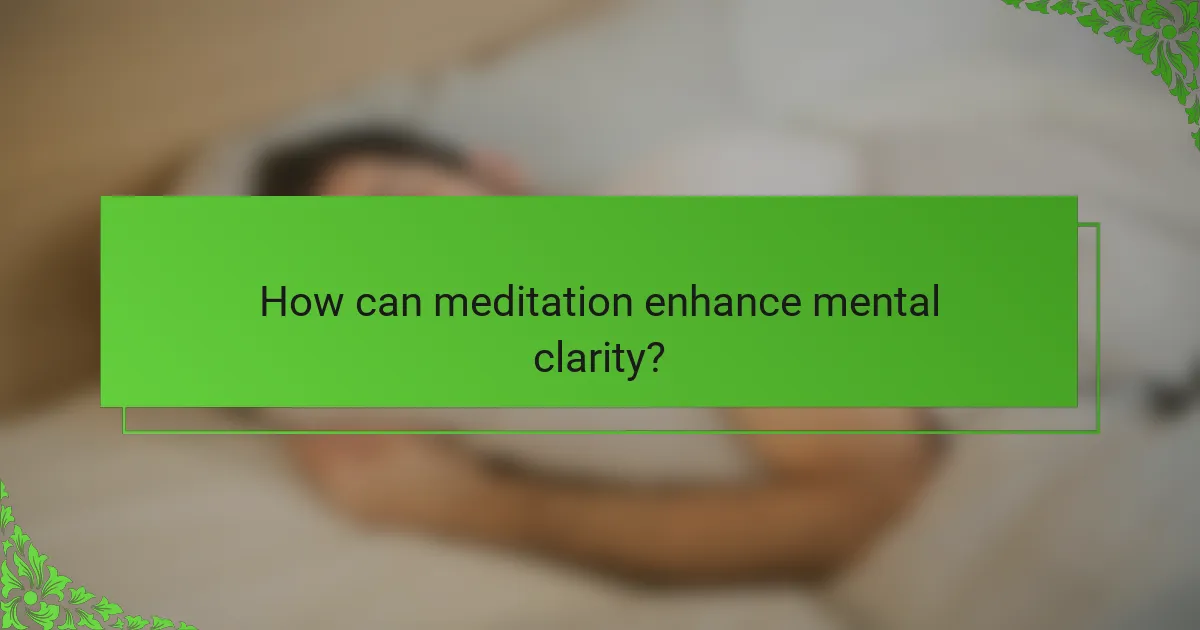
How can meditation enhance mental clarity?
Meditation enhances mental clarity by promoting focus and reducing distractions. Regular practice improves cognitive function, leading to better decision-making and problem-solving skills. Mindfulness meditation, in particular, has been shown to increase attention span and enhance working memory. As a result, individuals often experience heightened awareness and improved emotional regulation, contributing to overall mental clarity.
What are the cognitive benefits of regular meditation practice?
Regular meditation practice enhances cognitive function by improving focus, reducing stress, and promoting emotional regulation. Studies indicate that consistent meditation can increase cortical thickness in areas related to attention and sensory processing.
Meditation fosters neuroplasticity, allowing the brain to adapt and reorganize itself, which enhances learning and memory retention. Research shows that mindfulness practices can lead to a reduction in anxiety and depressive symptoms, contributing to better mental clarity.
Additionally, meditation has been linked to improved decision-making skills and greater creativity, as it encourages divergent thinking. Regular practitioners often report heightened self-awareness and better emotional control, which are crucial for cognitive health.
Which meditation styles promote focus and concentration?
Meditation styles that promote focus and concentration include mindfulness meditation, transcendental meditation, and focused attention meditation. These practices enhance mental clarity and reduce anxiety, leading to improved cognitive performance. Mindfulness meditation encourages awareness of the present moment, while transcendental meditation uses a mantra to settle the mind. Focused attention meditation trains the brain to concentrate on a single object or thought, fostering greater focus over time. Research shows that regular practice can significantly improve attention span and mental resilience.
How does meditation influence decision-making and problem-solving skills?
Meditation enhances decision-making and problem-solving skills by promoting mental clarity and reducing anxiety. Regular practice cultivates mindfulness, allowing individuals to approach challenges with a calm and focused mindset. Studies show that meditation improves cognitive flexibility, enabling better evaluation of options and more effective solutions. Additionally, it fosters emotional regulation, which is crucial for making rational decisions under pressure.
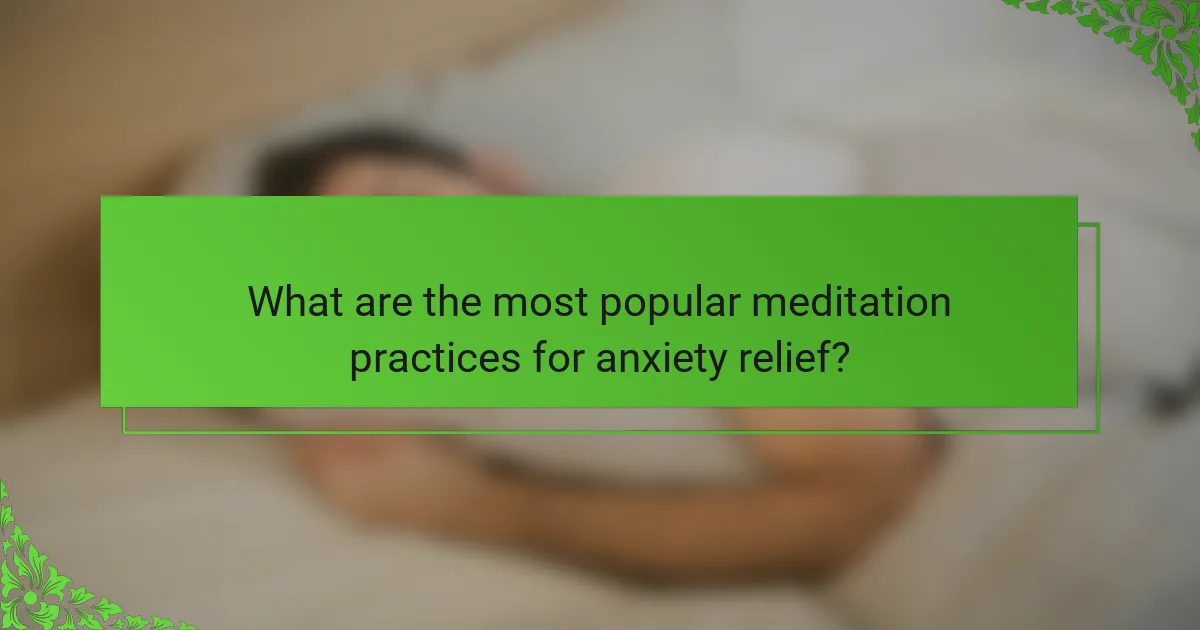
What are the most popular meditation practices for anxiety relief?
Meditation practices for anxiety relief include mindfulness meditation, loving-kindness meditation, body scan meditation, and guided visualization. Each practice uniquely addresses anxiety by promoting relaxation and mental clarity.
Mindfulness meditation enhances awareness of the present moment, reducing anxious thoughts. Loving-kindness meditation fosters positive emotions towards oneself and others, alleviating feelings of isolation. Body scan meditation encourages relaxation by focusing attention on different body parts, releasing tension. Guided visualization uses imagery to create a peaceful mental space, helping to mitigate anxiety.
Research indicates that these practices can significantly lower anxiety levels, with mindfulness meditation showing a 30% reduction in anxiety symptoms in studies. Incorporating these techniques into daily routines can lead to lasting mental clarity and emotional balance.
How does loving-kindness meditation help with anxiety and mental clarity?
Loving-kindness meditation effectively reduces anxiety and enhances mental clarity by promoting positive emotions and self-compassion. This practice fosters a sense of connection and reduces negative thought patterns. Research indicates that participants experience lower anxiety levels and improved focus after consistent practice. By cultivating kindness towards oneself and others, individuals can achieve greater emotional stability and clarity of thought.
What is the significance of guided meditation in anxiety management?
Guided meditation significantly aids in anxiety management by promoting relaxation and mindfulness. It helps individuals focus on the present, reducing worry about the past or future. Research indicates that guided meditation can lower cortisol levels, leading to decreased stress and anxiety symptoms. Regular practice enhances emotional resilience, enabling better coping strategies. Additionally, it fosters a deeper connection to one’s thoughts and feelings, empowering individuals to manage anxiety more effectively.
Which role does Transcendental Meditation play in enhancing mental clarity?
Transcendental Meditation enhances mental clarity by promoting deep relaxation and reducing stress. This practice allows the mind to settle, leading to improved focus and cognitive function. Regular practitioners report heightened awareness and better decision-making abilities. Studies indicate that consistent meditation can strengthen neural pathways associated with clarity and creativity.
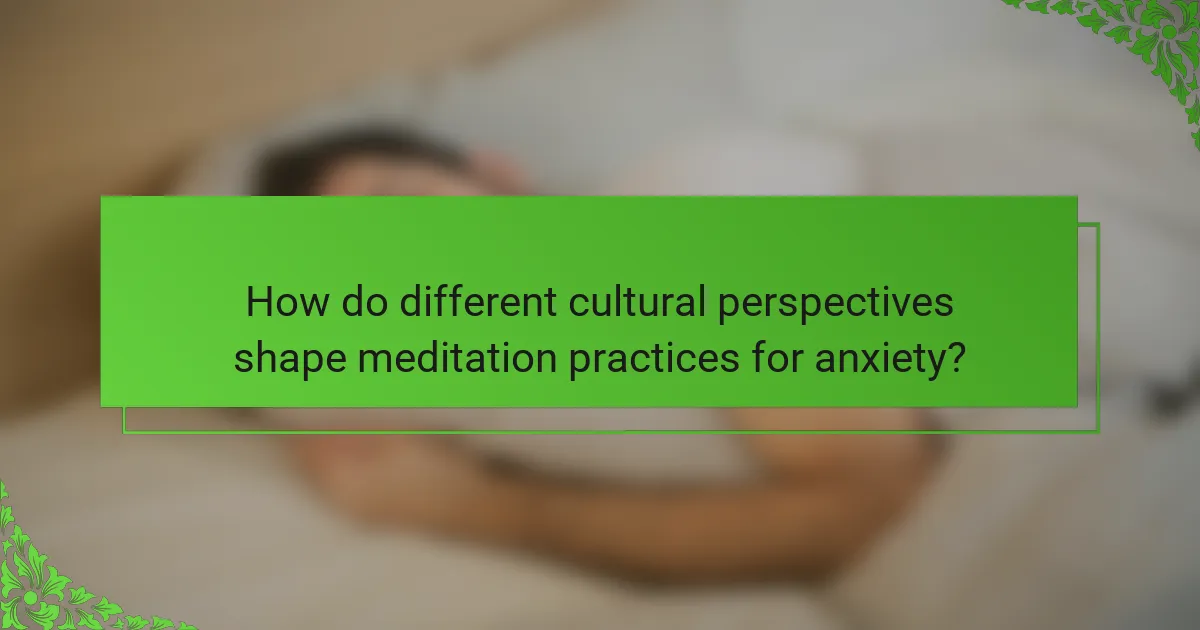
How do different cultural perspectives shape meditation practices for anxiety?
Different cultural perspectives significantly influence meditation practices for anxiety relief. For instance, Eastern traditions often incorporate mindfulness and breath control, emphasizing inner peace. In contrast, Western approaches may focus on cognitive restructuring and guided imagery, aiming for immediate anxiety reduction.
Cultural beliefs shape the understanding of anxiety and the purpose of meditation. In some cultures, meditation acts as a spiritual practice, while in others, it serves as a psychological tool. This distinction affects techniques and expected outcomes, leading to diverse practices tailored to cultural contexts.
Moreover, unique attributes emerge from these variations. Tibetan Buddhism emphasizes visualization techniques, while Japanese Zen meditation prioritizes sitting in silence. Such differences highlight how cultural backgrounds inform the methods used to achieve mental clarity and emotional stability.
Ultimately, the effectiveness of meditation for anxiety relief is enhanced by its cultural adaptation, making it a versatile tool across different societies.
What unique attributes of meditation are emphasized in Eastern traditions?
Eastern traditions emphasize unique attributes of meditation that enhance emotional resilience and self-awareness. These practices often focus on mindfulness, which cultivates present-moment awareness and reduces anxiety. Another attribute is the concept of non-attachment, encouraging practitioners to let go of negative thoughts and feelings. Additionally, many Eastern meditation techniques incorporate breath control, which aids in achieving mental clarity and emotional stability. These attributes collectively contribute to a holistic approach to mental health and well-being.
How do Western approaches to meditation differ in terms of anxiety relief?
Western approaches to meditation often emphasize structured techniques for anxiety relief, focusing on mindfulness and cognitive behavioral strategies. These methods aim to enhance mental clarity and emotional regulation by training individuals to observe their thoughts without judgment.
In contrast, Eastern practices may integrate more spiritual elements, such as transcendence and connection to a higher purpose, which can also alleviate anxiety but through different mechanisms. Research indicates that mindfulness meditation, popular in the West, can significantly reduce anxiety levels by fostering present-moment awareness and reducing rumination.
Additionally, Western meditation practices often utilize guided sessions led by instructors or apps, providing clear frameworks for participants. This contrasts with traditional Eastern practices, which may encourage self-guided exploration and deeper introspection.
Overall, while both approaches aim to relieve anxiety, Western methods typically prioritize practical techniques and immediate mental clarity, whereas Eastern practices may focus more on holistic and spiritual dimensions.
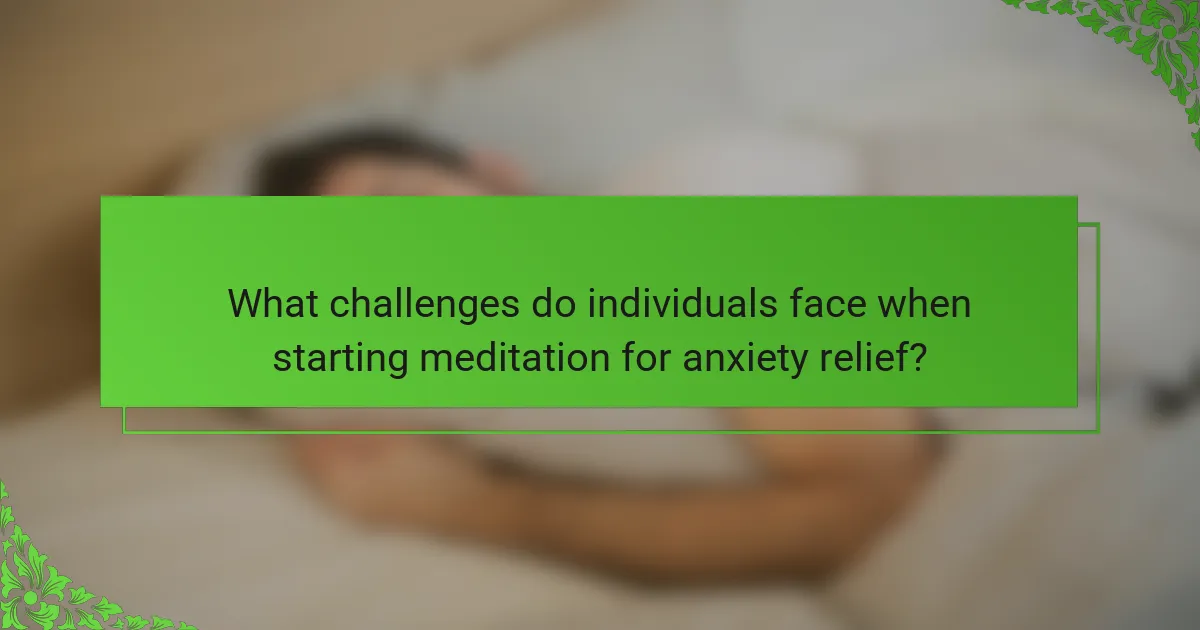
What challenges do individuals face when starting meditation for anxiety relief?
Individuals face several challenges when starting meditation for anxiety relief. Common obstacles include difficulty concentrating, unrealistic expectations, and discomfort with stillness.
Many beginners struggle to quiet their minds, leading to frustration. This can hinder the practice’s effectiveness. Unrealistic expectations may cause disappointment if immediate results are not experienced. Additionally, the initial discomfort with prolonged stillness can deter individuals from continuing.
Overcoming these challenges often requires patience and consistent practice. Gradually increasing meditation duration can help build comfort and concentration. Seeking guidance from experienced practitioners or using guided meditations can also enhance the experience.
What common misconceptions about meditation hinder its practice?
Common misconceptions about meditation include beliefs that it requires a completely empty mind or that it is only for spiritual practitioners. These misunderstandings can discourage individuals from practicing meditation for anxiety relief and mental clarity. In reality, meditation can be approached in various forms, such as mindfulness or guided sessions, making it accessible to everyone. Additionally, meditation does not necessitate the absence of thoughts; rather, it focuses on acknowledging and redirecting them, which can enhance mental clarity.
How can beginners overcome barriers to meditation?
Beginners can overcome barriers to meditation by starting with short sessions and gradually increasing duration. Focus on a comfortable environment to reduce distractions. Use guided meditations to provide structure and support. Establish a routine to build consistency and make meditation a habit.
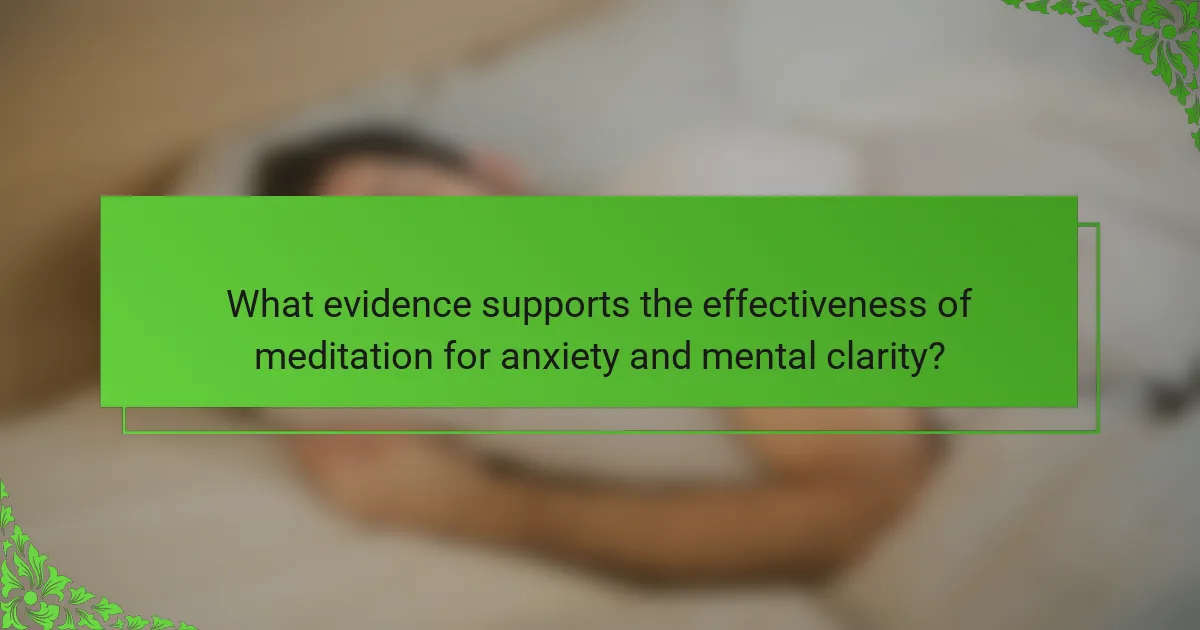
What evidence supports the effectiveness of meditation for anxiety and mental clarity?
Research shows meditation effectively reduces anxiety and enhances mental clarity. Studies indicate regular meditation practice leads to significant decreases in anxiety levels and improved cognitive functions. For instance, a meta-analysis found that mindfulness meditation can reduce anxiety symptoms by 30%. Furthermore, brain imaging studies reveal that meditation increases gray matter density in areas associated with emotional regulation and cognitive processing. This suggests that meditation not only alleviates anxiety but also promotes mental clarity by enhancing focus and attention.
Which studies highlight the impact of meditation on anxiety disorders?
Research indicates that meditation significantly reduces anxiety symptoms. A meta-analysis found that mindfulness meditation can decrease anxiety by up to 30%. Studies show that regular practice leads to structural changes in the brain, enhancing emotional regulation. Other research highlights the effectiveness of specific techniques, such as Transcendental Meditation, in lowering anxiety levels.
What are the long-term effects of meditation on mental health?
Meditation has long-term positive effects on mental health, including reduced anxiety and improved emotional regulation. Studies show regular practice enhances mindfulness, leading to better stress management and increased resilience. Participants report decreased symptoms of depression and anxiety disorders over time. Additionally, meditation fosters greater self-awareness, contributing to sustained mental clarity and emotional stability.
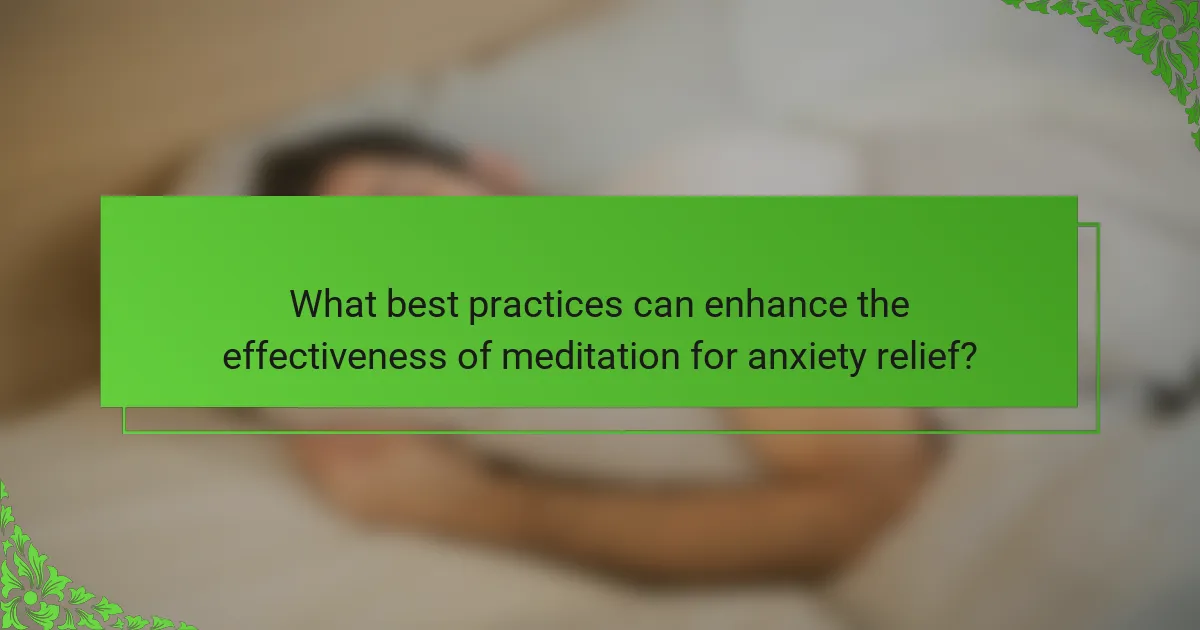
What best practices can enhance the effectiveness of meditation for anxiety relief?
Meditation can effectively relieve anxiety through several best practices. Establish a consistent schedule, aiming for daily sessions of at least 10 minutes. Focus on breath awareness to anchor your mind and reduce racing thoughts. Incorporate mindfulness techniques to enhance present-moment awareness and cultivate a non-judgmental attitude. Use guided meditations or apps to provide structure and support, especially for beginners. Experiment with different styles, such as loving-kindness or body scan, to find what resonates best. Lastly, create a calming environment to minimize distractions and enhance the overall experience.
How can individuals create a conducive environment for meditation?
Individuals can create a conducive environment for meditation by ensuring a quiet, comfortable space free from distractions. Key elements include dim lighting, comfortable seating, and minimal clutter. Incorporating calming scents, such as essential oils, can enhance relaxation. Additionally, maintaining a consistent schedule for meditation fosters a routine, supporting mental clarity and anxiety relief.
What routines can support consistent meditation practice?
Establishing a consistent meditation practice can be supported by daily routines. Start by setting a specific time each day for meditation, creating a sense of structure. Incorporate mindfulness into daily activities, such as eating or walking, to enhance awareness. Designate a quiet space free from distractions to encourage focus. Use guided meditations or apps for varied experiences and to maintain motivation. Lastly, reflect on your progress regularly to reinforce commitment and adapt your practice as needed.
What are common mistakes to avoid when practicing meditation for anxiety?
Common mistakes to avoid when practicing meditation for anxiety include unrealistic expectations, lack of consistency, and improper posture. Many beginners expect immediate results, leading to frustration. Consistency is crucial; sporadic practice yields minimal benefits. Additionally, neglecting proper posture can hinder relaxation and focus.
